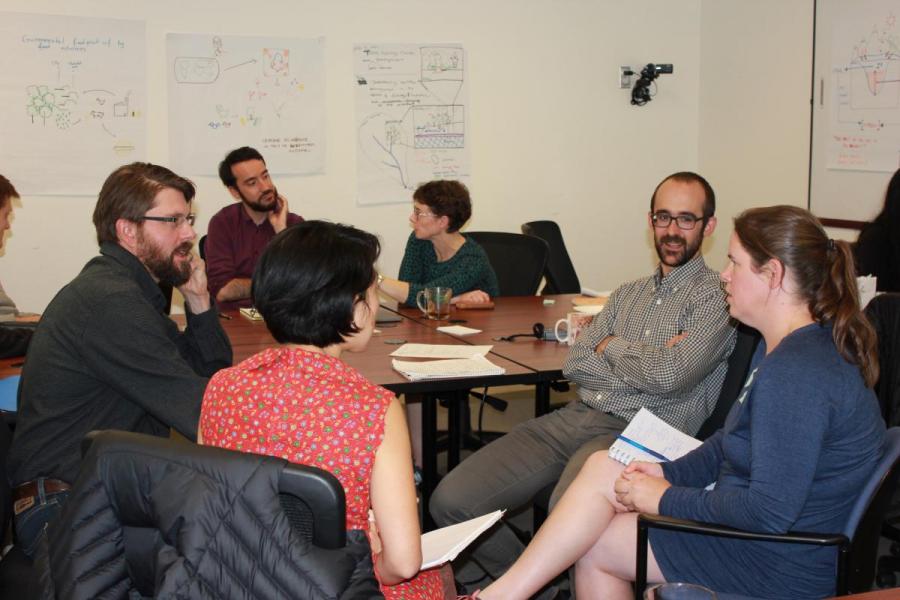
SESYNC’s Immersion Program is known for immersing the Center’s resident postdoctoral fellows in the theories and methods foundational to socio-environmental systems through its series of collaborative workshops. But, in light of the ongoing COVID-19 crisis, the Program is now finding itself immersed in an increasingly virtual world.
So, to better serve the postdoc community and the workshops’ invited Distinguished Scholars during this uncertain period, the Immersion Program is taking a novel, digital approach to its core feature—its workshops. For the first time, the Immersion Program will be transitioning its usual 2-day, in-person workshops this fall to an online learning format. While the format may change—such as the meetings’ length, the number of invited scholars, and the scope and delivery of the material presented—Dr. Christine Maietta, Assistant Director of Education at SESYNC, said the workshops’ main objectives will not.
“We still want to introduce SESYNC’s Postdoctoral Fellows to the foundations or theories associated with the discipline, common methodology, and their approaches to conducting and working in inter- or transdisciplinary S-E research,” Maietta, who co-leads the Immersion Program, explained.
Of course, transitioning a highly interactive, discussion-focused workshop to an online format won’t come without its challenges. In particular, Maietta said the Program is carefully considering the best way to facilitate the same “natural” interactions that occur between the participants and scholars in person when now meeting online. “These interactions are important because they help build the strong community at SESYNC, build friendships, and develop new professional networks,” she said.
To ensure that they’re still fostering the same level of dialogue and connection, Maietta said the Program is looking into different online resources and materials offered through the University of Maryland’s Teaching and Learning Transformation Center to find helpful and unique approaches. She said they would also be asking “the scholars and postdocs for their ideas on how we can create an online environment that facilitates this kind of interaction.”
Despite these challenges, this new format may offer some advantages. Maietta said that she hopes the online format would allow the meetings to cover the same amount of material in less time. She also shared the that Program would be collaborating with SESYNC’s Communications Team to video record the scholars’ presentations. “These videos could be viewed prior to the workshop, which would allow more time for discussion, and they will also serve as education resources for those unable to participate in our program,” she said.
While the workshops’ new format is still under development, the Program has already selected some of the topics and speakers for its upcoming events. For the first workshop held in late August, Maietta shared that the concentration would be on Team Science, led by members of SESYNC’s leadership team, Jon Kramer and Jim Boyd. The workshop in mid-October, led by Deana Pennington, of the University of Texas at El Paso, will focus on Interdisciplinary Skill while the third workshop occurring later in the fall will focus on Environmental Economics.
When it comes to selecting these topics, Maietta says the postdocs play an integral role. “We ask for their feedback at the end of each workshop and send out a call for suggestions at the end of the program,” she said. “We want the program to serve our community, and the best way to do that is for them to share with us what they want to do and need.” She added that SESYNC’s leadership team also provides input to help the Program ensure it is identifying new and creative ways to approach these workshops.
Certainly, moving the Immersion workshops to an online format constitutes a new and creative approach. But, the Immersion Program is up to the challenge and remains committed to fostering the same level of engagement and dialogue critical to immersing SESYNC postdocs in the foundations of socio-environmental research.